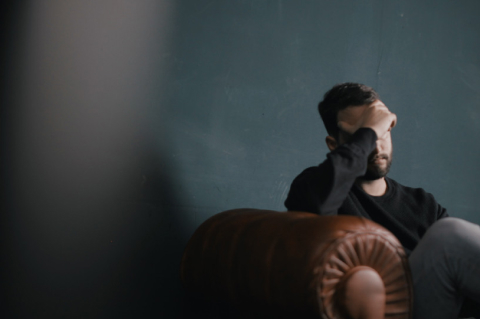Working as a Certified Peer Recovery Specialist (CPRS) can be one of the most rewarding careers in recovery. If you’re looking to give back to your community and grow within your own recovery, working as a CPRS can offer so many opportunities. Starting as a CPRS, you have the space to grow into different roles within this career track through continued education and completing a set amount of hours of work experience. In this post, we’ll break down the different roles, and how you can advance to each. At Kyros, we’re working to support our peers as they grow their career – and we want to assist each individual in finding the right path for them!
Who Can Become a CPRS?
Anyone with lived experience of recovery and a GED/high school diploma or equivalent can train to become a CPRS. As a person in recovery, we highly value ALL of your lived experience – the good, the bad and the ugly! Your unique individual experience has the potential to transform the lives of others who have experienced similar things in recovery, and that is indispensable.
Working with a checkered past can be difficult at times, and you may be left wondering what opportunities are available to you. Working as a CPRS is not only beneficial to your overall recovery, but is a great professional opportunity to grow your career your way.
Peer Recovery Roles
Certified Peer Recovery Specialist (CPRS)
CPRSs work as advocates and mentors for their peers in recovery. They meet one-on-one with clients and perform daily check-ins, assist in finding resources and create a recovery wellness plan tailored to their clients. This is an entry-level state credential that requires the following:
- 46 hours of training
- GED/high school diploma or equivalent
- Completion of certification exam
Through our partnership with Refocus Recovery Kyros offers a FREE weekly training class, both AM and PM options available. Get trained today!
Certified Peer Recovery Specialist-Reciprocal (CPRS-R)
If you are already working successfully as a CPRS, you can upgrade your credential immediately to become a Reciprocal. CPRS-Rs begin supervising other CPRSs as they work to grow into the position of Supervisor. To upgrade your credential, the following is required:
- CPRS certification is active
- 500 hours of accumulated work experience
- 25 hours of supervision
Kyros CPRSs work with a support team that assists their career development as a recovery professional. Supervisors have direct experience with credentialing and work with their individual CPRS teams to upgrade their credentials to make this process as frictionless as possible for you. You can also find the CPRS-R upgrade form here.
Certified Peer Recovery Specialist (CPRS) Supervisor
CPRS Supervisors work with teams of CPRSs and provide supervision to said team members. They serve as a resource and mentor to their CPRSs and guide them in becoming effective advocates for their clients. To become a Supervisor, here are the requirements:
- CPRS-R certification is active
- 3 hours of completed education – training or workshop – that cover the following areas:
- MCB Peer Recovery Specialist Code of Ethical Conduct
- IC&RC Peer Recovery domains
- Relevant statutes, rules and standards relevant to the provision of peer recovery services in Minnesota
- Supervision concepts pertinent to peer recovery.
As you are working to grow into this role yourself, your current CPRS Supervisor can provide you with guidance throughout this process.
Certified Peer Recovery Specialist (CPRS) Forensic Endorsement
Once you’ve begun working as a CPRS, you can pursue this additional credential to supplement your role. CPRSs with a forensic endorsement focus specifically on providing services to individuals with involvement in the criminal justice system. The forensic endorsement assists you as you work with clients to overcome criminal justice-related challenges, and guide your clients as they maintain recovery and wellness using their own lived experience. To receive this endorsement the following are required:
- CPRS certification is active
- Lived experience with the criminal justice system and 2 years of probation free experience
- Completion of 21 hours of forensic endorsement educational training through MCB approved provider that covers the following domains:
- Advocacy
- Mentoring and Education
- Recovery and Wellness Support
- Professional and Ethical Responsibility
- Foundations of the Criminal Justice System and Correctional System Overview
- Trauma Informed Care in the Criminal Justice Settings
- Integration, Reintegration, and Reentry
- Signed and dated Code of Ethics form
Turned Your Lived Experience into an Asset
CPRSs offer valuable insight into various aspects of recovery, and work with individuals to become capable of living abundantly in recovery. As you advance within your career, more peer recovery roles become available to you. Within all professional peer recovery roles, there is an opportunity to help others. At Kyros, we are in the business of helping people – and this starts with our CPRSs.
Get Started As a CPRS Now!
If you or someone you know has lived experience in recovery and is looking for an opportunity to grow their professional career while helping others, get started now with us today.





